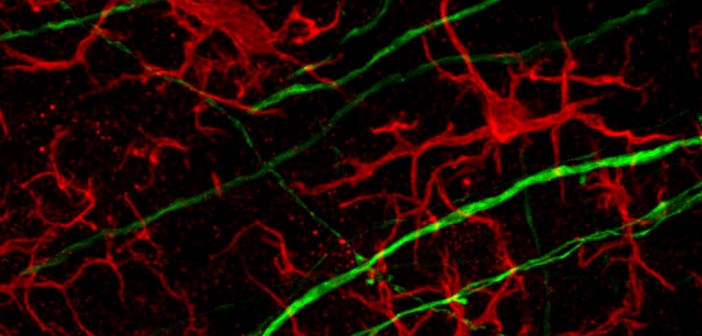New depression diagnosis and treatment based on ‘microglia’ cells in the brain
Major depression, which afflicts one in six people at some point in their life, is the leading global cause of disability – surpassing cardiovascular and respiratory diseases, cancer and HIV/AIDS combined.
In a groundbreaking theoretical review paper published in the peer-reviewed journal, Trends in Neurosciences, researchers from the Hebrew University of Jerusalem suggest that “progress in the understanding of the biology of depression has been slow,” requiring expanding beyond the “abnormalities in the functioning of neurons.”
The contribution of other brain cells — often neglected by researchers — may be more relevant in causing depression, according to psychobiology Prof. Raz Yirmiya, director of the Hebrew University’s Laboratory for PsychoNeuroImmunology, and senior author of the journal’s paper, titled “Depression as a microglial disease.”
Recent research at the Hebrew University’s laboratory and elsewhere finds that some forms of depression may result from malfunctioning brain cells, termed “microglia.” “However,” Prof. Yirmiya cautions, “this does not mean that all sub-types of depression or other psychiatric diseases are originated by abnormalities in these cells.”
Prof. Yirmiya’s new research could have a profound impact on the future development of anti-depressant medications. Present drugs do not always have the desired effect on patients, so there is an urgent need to discover novel biological mechanisms and drug targets for diagnosing the root cause of depression and for treating depressed patients appropriately.
In Trends in Neuroscience, the Hebrew University researchers claim that diseased microglia can cause depression and drugs that restore the normal functioning of these cells can be effective as fast-acting anti-depressants.
Microglia, which comprise 10% of all brain cells, are the brain’s immune cells. They fight infectious bacteria and viruses in the brain. They also promote repairing and healing processes of damages caused by brain injury and trauma.
Tratto da PsyPost - prosegui nella lettura dell'articolo
Scrivi articoli di psicologia e psicoterapia e ti piacerebbe vederli pubblicati su Psiconline?
per sapere come fare, Clicca qui subito!
Tags: brain depression diagnosis treatment microglia cells major depression







